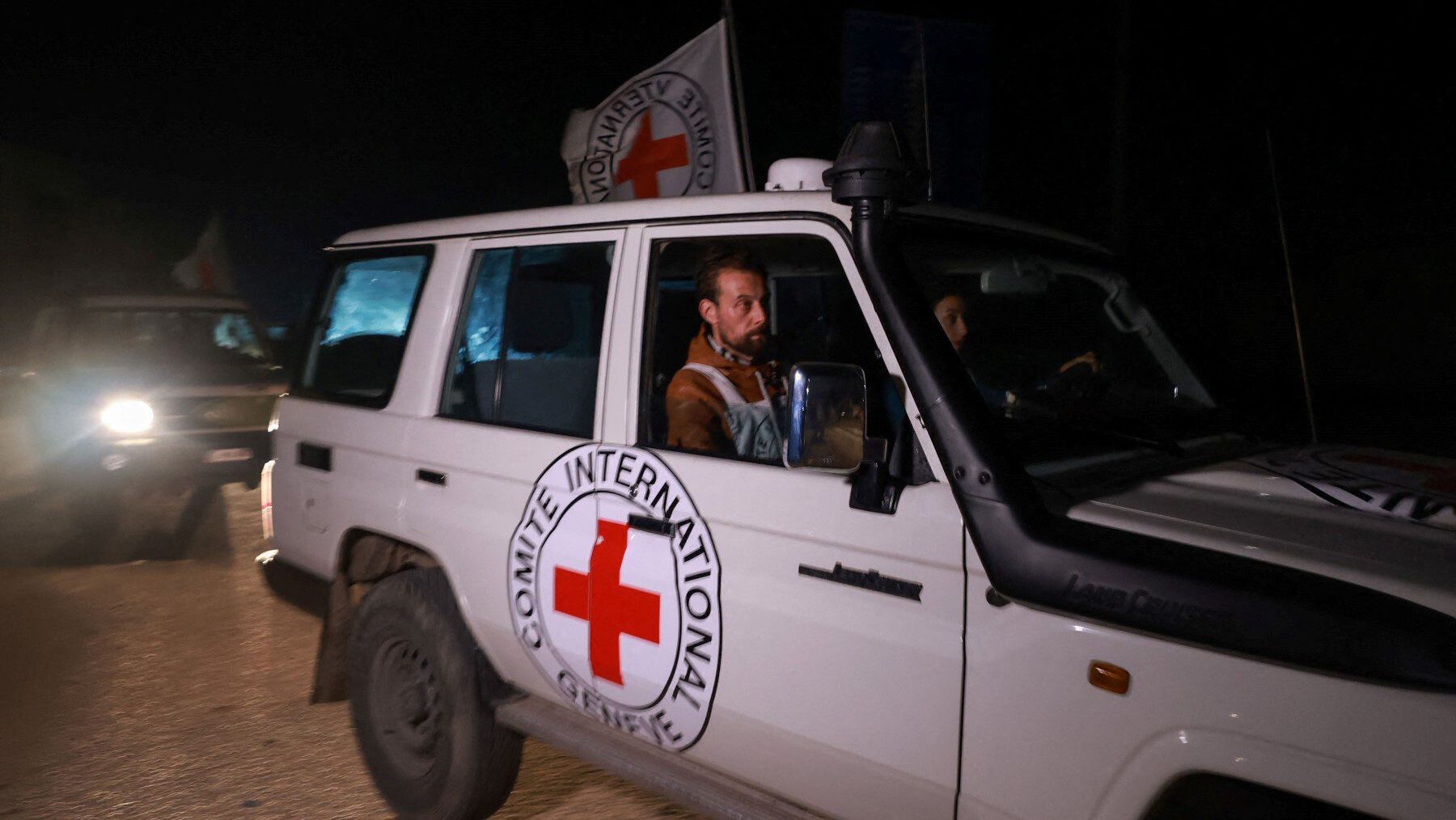
Red Cross vehicles part of a convoy carrying Israeli hostages arrives at the Rafah crossing in the southern Gaza Strip on November 30, 2023, amid the release of Palestinian prisoners in exchange for hostages held by Hamas in Gaza since the October 7 attacks.
Photo: AFP
Israeli relatives of hostages kidnapped by the terrorist group Hamas on October 7th have complained that the Red Cross has refused to bring medication to their loved ones, with some even claiming Red Cross personnel told them to sympathise with the Palestinians.
Doron Steinbrecher is one of the Israelis kidnapped by Hamas and requires medication every day, but her parents, Roni and Simona, have reported that the Red Cross has refused to take the medication to their child, according to The Jerusalem Post.
According to the couple, the Red Cross met with them and instead of agreeing to take the medication to their child, told them to “think about the Palestinian side,” adding, “It’s hard for the Palestinians; they’re being bombed.”
The case is not unique, as the relatives of 84-year-old Elma Avraham also claimed that the Red Cross refused to take medication to the elderly woman when she was held in captivity by the terrorist group.
Avraham was later released during the brief ceasefire between Hamas and Israel and was sent to a hospital immediately afterwards due to the seriousness of her health condition.
“We were in meetings with the Red Cross and asked them to make every effort to bring the medications to her because some hostages are just dying. From a medical and nursing standpoint, what we witnessed is unlawful neglect,” Dr. Nadav Davidovitz said.
The British Red Cross has commented on the International Committee of the Red Cross (ICRC) and its role regarding the hostages, saying:
As a neutral intermediary, the ICRC stands ready to visit the hostages and continuously requests access to them.
The ICRC does not have information about where the hostages are. And even if there were situations where a location is known, the ICRC cannot force its way into where hostages are held.
ICRC colleagues can only conduct visits once agreements are in place with the parties holding them, including ensuring their safe access.
But the ICRC is doing everything in its power, publicly and behind the scenes, to facilitate the release of the hostages and ensure humane treatment. It will continue to do so for as long as necessary.
In a podcast, Yael Freidson, a legal correspondent for the Israeli newspaper Haaretz, reported that many of the hostages are elderly or have medical conditions, including injuries sustained when they were kidnapped by Hamas in October. Newly released hostages “have provided a totally new picture of the deteriorating conditions for Hamas captives”:
There was less food. Less medical treatment. And, unfortunately, we hear about very cruel treatment … separating siblings, or a mom and her daughter. Some of them were tortured, especially the children.
“Everyone hopes that the Red Cross representatives could visit them and pass on medicine and messages from the families to the hostages,” she added.
The Red Cross has also been central in facilitating the transfer of the hostages during the ceasefire between Hamas and Israel and has publicly called for the release of all hostages, and stated:
From day one, the ICRC and International Federation of the Red Cross and Red Crescent Societies have clearly stated that taking hostages is prohibited under International Humanitarian Law.
They have called relentlessly for their immediate release.
The ICRC is also working hard to advocate on behalf of the hostages, doing everything in its power to gain access and ensure their humane treatment and access to healthcare. They desperately want to give families in Israel and overseas information on their loved ones.
While Hamas has released some of the hostages, the Israeli health ministry announced earlier this week that the terrorist group may have drugged those who were released in order to make them appear calm.
A health ministry representative told the Knesset that Hamas gave the freed hostages tranquilliser drugs just prior to their release, with Dr. Hagar Mizrahi, head of the health ministry’s medical division, specifically naming Clonazepam as the drug used.
The Times of Israel newspaper, however, notes that the ministry did not say whether or not blood tests of the hostages had confirmed that they had been drugged.
Dr. Yael Mozer-Glassberg, director of Israel’s paediatric liver transplantation service at Schneider Children’s Medical Center, also contradicted initial claims that the hostages were in good medical condition following their release, saying some had lost as much as 10-15% of their body weight while in captivity, while others suffered from infections in the injuries sustained during their kidnapping.